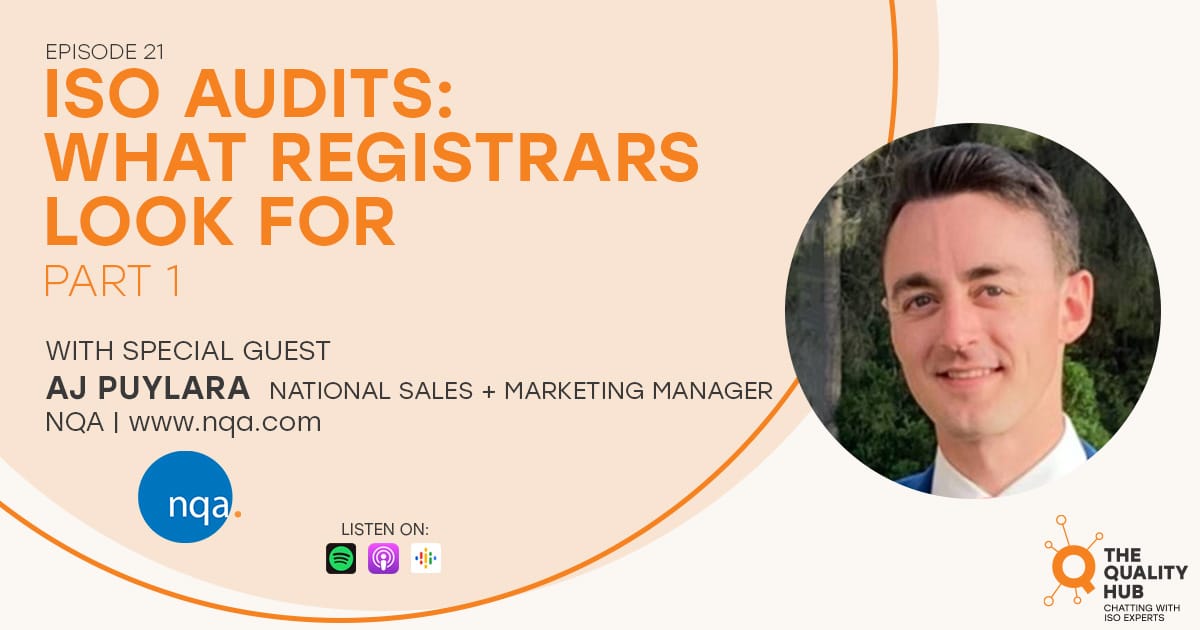What is the Meaning of ISO 9001?
ISO 9001 is more than just a set of requirements; it’s a framework for organizations to establish, implement, and continually improve their quality management processes. By adhering to ISO 9001 standards, organizations can achieve various benefits, including improved efficiency and productivity, enhanced customer satisfaction, international recognition, and market access.
Introduction
In the realm of quality management and organizational excellence, the acronym ISO holds significant weight. ISO, or the International Organization for Standardization, sets forth a multitude of standards aimed at ensuring products, services, and processes meet certain criteria for quality, safety, and efficiency. Among these standards, ISO 9001 stands out as a cornerstone for organizations striving for excellence in their quality management practices.

Understanding the true meaning and implications of ISO 9001 is essential for businesses seeking to establish robust quality management systems and enhance their overall performance. This article delves into the essence of ISO 9001, elucidating its core principles, benefits, and implementation strategies. By unraveling the intricacies of ISO 9001, organizations can gain valuable insights into how they can improve their operations, satisfy customers, and achieve sustainable success in today’s competitive landscape.
ISO 9001 is one such standard developed by ISO, focusing specifically on quality management systems (QMS). It provides a framework for organizations to establish, implement, maintain, and continually improve their quality management processes. Understanding ISO standards, including ISO 9001, is essential for organizations aiming to enhance their competitiveness, build customer trust, and achieve sustainable success in today’s dynamic business environment.

What is ISO 9001?
ISO 9001 is a globally recognized standard developed by the International Organization for Standardization (ISO) that sets out the criteria for a quality management system (QMS). It provides a framework for organizations of all sizes and industries to establish, implement, maintain, and continually improve their quality management processes.
What is the History of ISO 9001?
Originally published in 1987, ISO 9001 has undergone several revisions to stay relevant and effective in meeting the evolving needs of businesses and customers. The latest version, ISO 9001:2015, emphasizes a risk-based approach to quality management and places greater emphasis on leadership, the context of the organization, and stakeholder engagement.
What are the Principles of ISO 9001?
At its core, ISO 9001 outlines a set of principles and requirements that organizations must adhere to to achieve and maintain quality excellence.
These ISO 9001 Principles and Requirements Include:
Customer Focus:
Organizations must understand and meet customer requirements and strive to enhance customer satisfaction.
Leadership:
Top management is responsible for establishing the quality policy, and objectives, and ensuring the QMS is integrated into the organization’s business processes.
Engagement of People:
Employees at all levels should be involved in the quality management process and encouraged to contribute to continual improvement.
Process Approach:
Emphasizes the importance of understanding and managing interrelated processes as a system to achieve desired outcomes.
Improvement:
Continuous improvement is essential for enhancing the organization’s overall performance and effectiveness.
Evidence-Based Decision Making:
Decisions should be based on the analysis of data and information to ensure the effectiveness of the QMS.
Relationship Management:
Organizations should maintain mutually beneficial relationships with relevant interested parties, including suppliers and partners.
By implementing ISO 9001, organizations can establish a systematic approach to quality management, improve operational efficiency, reduce waste and errors, and enhance customer satisfaction. ISO 9001 certification demonstrates to customers, stakeholders, and partners that an organization is committed to delivering products and services of consistent quality and meeting regulatory requirements.
Overall, ISO 9001 serves as a roadmap for organizations to achieve excellence in quality management and drive continual improvement in their operations and performance.

What are the Key Components of ISO 9001?
ISO 9001 encompasses several key components that form the foundation of a robust quality management system (QMS).
These components are essential for organizations aiming to achieve and maintain certification under the ISO 9001 standard.
Here are the core elements of ISO 9001:
Quality Management System (QMS):
Central to ISO 9001 is the establishment of a quality management system (QMS) tailored to the organization’s unique context and requirements. A QMS comprises documented policies, procedures, processes, and resources designed to ensure consistent product and service quality.
The QMS serves as a framework for defining and implementing quality objectives, monitoring performance, and driving continual improvement throughout the organization.
Process Approach:
ISO 9001 emphasizes a process approach to quality management, recognizing that desired outcomes are achieved more efficiently when activities and resources are managed as interconnected processes.
Organizations are encouraged to identify, map, and manage key processes that contribute to product/service realization, from initial customer inquiry to delivery and post-delivery support.
Continual Improvement:
Continuous improvement is a fundamental principle of ISO 9001, requiring organizations to systematically seek opportunities for enhancing their processes, products, and services.
Through the use of performance metrics, data analysis, and feedback mechanisms, organizations can identify areas for improvement and implement corrective and preventive actions to address root causes of non-conformities or inefficiencies.
Customer Focus:
ISO 9001 underscores the importance of understanding and meeting customer requirements and expectations. Organizations must actively engage with customers to determine their needs, preferences, and satisfaction levels.
By maintaining a customer-centric approach, organizations can enhance customer satisfaction, build loyalty, and drive repeat business.
These key components of ISO 9001 provide organizations with a structured framework for achieving quality excellence, fostering continual improvement, and meeting customer expectations. By embracing these principles and integrating them into their operations, organizations can establish a culture of quality, drive operational efficiency, and enhance their overall competitiveness in the marketplace.

What are the Benefits of ISO 9001?
ISO 9001 certification offers a multitude of benefits for organizations across various industries. By implementing and maintaining a quality management system (QMS) in accordance with ISO 9001 standards, organizations can realize tangible advantages that contribute to their long-term success and sustainability.
Here are some key benefits of ISO 9001:
Improved Efficiency and Productivity:
ISO 9001 encourages organizations to streamline their processes, eliminate redundancies, and optimize resource utilization. By adopting a systematic approach to quality management, organizations can improve operational efficiency, reduce waste, and enhance productivity.
Enhanced Customer Satisfaction:
A primary focus of ISO 9001 is on meeting and exceeding customer requirements and expectations. By implementing robust quality processes and consistently delivering high-quality products and services, organizations can enhance customer satisfaction, build trust, and foster long-term relationships with customers.
International Recognition and Market Access:
ISO 9001 certification is globally recognized and respected, providing organizations with a competitive edge in the marketplace. Certification demonstrates to customers, suppliers, and stakeholders that an organization is committed to quality excellence and compliance with international standards, thereby enhancing its reputation and credibility.
Improved Risk Management:
ISO 9001 promotes a risk-based approach to quality management, requiring organizations to identify, assess, and mitigate risks that could impact product/service quality or organizational objectives. By proactively addressing risks and opportunities, organizations can minimize disruptions, improve decision-making, and enhance resilience.
Regulatory Compliance:
Compliance with ISO 9001 standards helps organizations meet regulatory requirements and industry standards related to quality management. By aligning their processes with ISO 9001 requirements, organizations can ensure compliance with applicable laws, regulations, and customer specifications.
Employee Engagement and Satisfaction:
ISO 9001 emphasizes the importance of engaging employees in the quality management process and fostering a culture of continuous improvement. By involving employees in quality initiatives, organizations can boost morale, empower teams, and foster a sense of ownership and accountability.
Cost Savings:
Implementing ISO 9001 can lead to significant cost savings through improved efficiency, reduced rework, and fewer defects or non-conformities. By minimizing waste and maximizing resource utilization, organizations can realize tangible financial benefits over time.
In summary, ISO 9001 offers a wide range of benefits for organizations seeking to enhance their quality management practices, drive continual improvement, and achieve sustainable business success. By investing in ISO 9001 certification, organizations can position themselves for growth, competitiveness, and resilience in today’s dynamic marketplace.
What is the Cost of ISO 9001 Certification?
The costs associated with ISO 9001 certification depend on several factors and vary depending on the size and complexity of the organization. Ballpark? In general, ISO 9001 Certification preparation costs are in the range of between $3,000 (self-preparing) to $15,000 (with consultant help).
Let’s Explore that in more Detail.
At the time of this writing in 2024, with Core Business Solutions, it costs between $5,700 and $15,000 for our complete-support consulting preparation programs. Additional costs are incurred for the registrar to issue your certificate. These registrar costs can range from $3,500-$5,000 for your initial certification audit.
How is ISO 9001 Implemented?
Implementing ISO 9001 requires a structured approach and commitment from the organization’s leadership and employees. While the process may vary depending on the organization’s size, industry, and complexity, there are general steps that can guide successful implementation.
Here are key considerations for implementing ISO 9001:
Commitment from Top Management:
Leadership commitment is critical to the successful implementation of ISO 9001. Top management must demonstrate active involvement, support, and commitment to quality management principles and objectives. This includes allocating resources, establishing quality policies and objectives, and communicating the importance of ISO 9001 certification throughout the organization.
Gap Analysis and Needs Assessment:
Conduct a comprehensive gap analysis to assess the organization’s current quality management practices and identify areas that need improvement or alignment with ISO 9001 requirements. This involves reviewing existing processes, documentation, and quality metrics to determine gaps and opportunities for enhancement.
Developing the Quality Management System (QMS):
Develop a tailored quality management system (QMS) that aligns with ISO 9001 requirements and addresses the organization’s specific needs and objectives. This includes documenting policies, procedures, work instructions, and process maps to define how quality objectives will be achieved and maintained.
Employee Training and Awareness:
Provide training and awareness programs to ensure that employees understand their roles, responsibilities, and contributions to the QMS. Training should cover ISO 9001 requirements, quality policies, procedures, and relevant quality tools and techniques. Engage employees at all levels to foster buy-in and ownership of the QMS.
Implementation and Integration:
Implement the QMS across the organization, ensuring that processes are effectively integrated and aligned with ISO 9001 requirements. This may involve pilot testing the QMS in selected areas before full-scale implementation to identify and address any issues or challenges.
Monitoring and Measurement:
Establish metrics, key performance indicators (KPIs), and monitoring mechanisms to track the performance of the QMS and measure progress toward quality objectives. Regularly review and analyze data to identify trends, areas for improvement, and opportunities for corrective action.
Internal Audits and Management Review:
Conduct internal audits to assess the effectiveness of the QMS and ensure compliance with ISO 9001 requirements. Schedule periodic management reviews to evaluate the performance of the QMS, identify opportunities for improvement, and make informed decisions based on data and feedback.
Continuous Improvement:
Foster a culture of continuous improvement by encouraging feedback, soliciting suggestions for improvement, and implementing corrective and preventive actions as necessary. Continuously seek opportunities to enhance the effectiveness and efficiency of the QMS and drive continual improvement throughout the organization.
By following these steps and integrating ISO 9001 principles into their operations, organizations can successfully implement a robust quality management system that aligns with international standards and drives performance excellence. ISO 9001 certification demonstrates to customers, stakeholders, and partners that the organization is committed to delivering high-quality products and services and continuously improving its processes and performance.

Who Can Benefit from ISO 9001?
ISO 9001 is a versatile standard that can benefit organizations across various industries and sectors. Whether an organization is large or small, in manufacturing, services, or any other field, ISO 9001 offers numerous advantages that contribute to improved quality management and overall performance.
Here are the types of organizations and industries that can benefit from ISO 9001:
Manufacturing Companies:
Manufacturing companies can benefit significantly from ISO 9001 by implementing standardized processes, ensuring product quality, and enhancing customer satisfaction. ISO 9001 helps manufacturers streamline production, reduce defects, and improve supply chain management.
Service Providers:
Service-oriented organizations, such as healthcare facilities, educational institutions, consulting firms, and IT companies, can leverage ISO 9001 to establish consistent service delivery processes, enhance customer satisfaction, and drive continual improvement in service quality.
Small and Medium-sized Enterprises (SMEs):
SMEs can gain a competitive edge by achieving ISO 9001 certification, as it demonstrates their commitment to quality management and customer satisfaction. ISO 9001 provides SMEs with a framework for establishing efficient processes, improving operational effectiveness, and accessing new markets.
Government Agencies and Non-Profit Organizations:
Government agencies and non-profit organizations can benefit from ISO 9001 by enhancing transparency, accountability, and stakeholder trust. ISO 9001 helps these organizations improve service delivery, optimize resource allocation, and demonstrate compliance with regulatory requirements.
Construction and Engineering Firms:
Construction and engineering firms can improve project management, quality control, and risk management by implementing ISO 9001. ISO 9001 helps these organizations ensure compliance with specifications, regulations, and client requirements, leading to better project outcomes and client satisfaction.
Healthcare and Pharmaceutical Companies:
Healthcare providers, pharmaceutical manufacturers, and medical device companies can enhance patient safety, regulatory compliance, and operational efficiency with ISO 9001. ISO 9001 helps these organizations establish robust quality management systems, mitigate risks, and improve healthcare outcomes.
Retailers and Consumer Goods Companies:
Retailers and consumer goods companies can improve product quality, supply chain management, and customer satisfaction with ISO 9001. ISO 9001 helps these organizations ensure compliance with quality standards, reduce product recalls, and enhance brand reputation.
Professional Services and Consulting Firms:
Professional services firms, including legal, accounting, and consulting firms, can benefit from ISO 9001 by improving service quality, client satisfaction, and operational efficiency. ISO 9001 helps these organizations establish standardized processes, enhance risk management, and drive continuous improvement.
In summary, organizations of all types and sizes, across various industries, can benefit from implementing ISO 9001. By adopting ISO 9001 standards and principles, organizations can improve quality management practices, enhance customer satisfaction, and achieve sustainable business success.
Conclusion
In essence, ISO 9001 embodies a commitment to quality management and continual improvement that transcends industries and organizational boundaries. Throughout this article, we’ve explored the meaning and significance of ISO 9001, delving into its core principles, key components, benefits, and implementation strategies.
ISO 9001 is a Pathway
ISO 9001 is not merely a set of guidelines or requirements; it is a pathway to excellence that empowers organizations to enhance their processes, products, and services while prioritizing customer satisfaction and stakeholder trust. By embracing ISO 9001 standards and principles, organizations can establish a culture of quality, drive operational efficiency, and unlock opportunities for growth and innovation.

ISO 9001 Offers Tangible Benefits
As we navigate an increasingly complex and competitive business landscape, ISO 9001 provides a roadmap for organizations to navigate challenges, seize opportunities, and achieve sustainable success. Whether you’re a manufacturing company, service provider, government agency, or non-profit organization, ISO 9001 offers tangible benefits that can propel your organization forward and set you apart in the marketplace.
In closing, let us remember that ISO 9001 is not just a certification; it’s a mindset—an unwavering commitment to quality, excellence, and continual improvement. By embracing the meaning of ISO 9001 and integrating its principles into our organizational DNA, we can chart a course toward excellence and unlock our full potential in today’s dynamic and ever-evolving world.
Helpful Resources: ISO Audits – What Registrars Look For Part 1
In this episode of “The Quality Hub: Chatting with ISO Experts,” host Xavier Francis interviews AJ Puylara, National Sales and Marketing Manager at NQA, a global certification body. AJ shares his experience in the ISO industry and discusses the ISO certification process. He highlights the steps involved, including engaging with a third-party ISO consultant or registrar and conducting a gap assessment. Listen Now
Helpful ISO 9001:2015 YouTube Videos:
What is ISO 9001- ISO 9001 Explained
How Long does ISO 9001 Really Take? Avoid these 3 Mistakes
ISO Compliance vs Certification | Which Is Right For You?
What is Risk-Based Thinking? [How To: ISO 9001]
ISO 9001 for Small Business? | ISO 9001 Certification Explained
Helpful ISO 9001:2015 Articles
3 Steps to ISO 9001 Certification – 2023 Update
ISO Compliance VS. Certification – 2023 Update
What’s really required for a Small Business to get ISO 9001 Certification? Part 1 – 2023 Update
What’s really required for a Small Business to get ISO 9001 Certification? Part 2 – 2023 Update
Helpful ISO 9001:2015 Podcasts:
The Quality Hub: Episode 1 – Kickoff For Quality
The Quality Hub: Episode 2 – Planning Your QMS
The Quality Hub: Episode 3 – From Planning to Implementation
The Quality Hub: Episode 4 – Putting It All Together
The Quality Hub: Episode 5 – Reviewing Your Progress
The Quality Hub: Episode 6 – The Internal Audit Process
The Quality Hub: Episode 7 – Your Certification Audit
The Quality Hub: Episode 8 – Life After the Audit
About Scott Dawson
Since 2010, Scott Dawson, President of Core Business Solutions, has been an active voting member of the U.S. Technical Advisory Group (TAG) to ISO Technical Committee 176 (TC 176). TAG 176 members meet to discuss and develop U.S. positions for Quality Management standards, including ISO 9001:2015, which will be revised in 2025.





